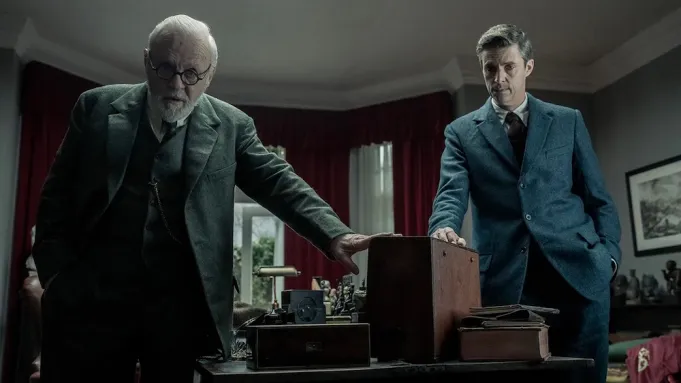Based on the play of the same name by Mark St. Germain, writer/director Matthew Brown has adapted the play for cinema. I cannot attest to the actual quality of the play as I have never experienced it. Still, this movie adaptation lacks a compelling case for this possible meeting. Both Sigmund Freud and C.S. Lewis led fascinating lives that culminated in their work, which have left indelible marks on the worlds of psychology and literature. While the film offers some fascinating insight into the motivations that drove their careers, it falls short regarding this meeting of the minds.
Anthony Hopkins stars as Dr. Sigmund Freud, an Austrian psychoanalyst essentially considered the father of psychology. C.S. Lewis is a British author and theologian whose work in literature was inspired by his devout religious beliefs. The film creates a setting where two very different people with opposing ideologies meet just before Freud’s death, where the two scholars debate the existence of God.
The movie’s entire premise instilled in me the hope that this film would be an intriguing exercise in the existential discussion. While it does have its moments, Freud’s Last Session eventually becomes a tedious exercise in an argument that goes nowhere. The film delivers some compelling insight into the past lives of its characters but gets redundant with arguments on both sides.
The director does a solid job creating the setting but needs to do something more interesting with either the backstories or the actual meeting between these two very different personalities. Both Hopkins and Goode commit to their characters quite well, with Goode being the real standout. However, the script’s weaknesses keep this film from becoming a very thought-provoking piece of artistic cinema.
If one knows very little about the backgrounds of Sigmund Freud or C.S. Lewis, this movie is worth watching. I wouldn’t recommend it too highly for those who know their backgrounds well.
